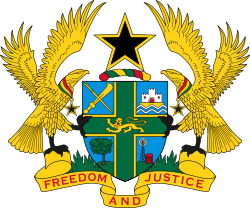4 June military coup
The AFRC came to power in a coup that removed the Supreme Military Council, another military regime, from power. The June 4 coup was preceded by an abortive attempt on May 15, 1979, when Flt. Lt. Jerry Rawlings and other ranks were arrested. Their trial only served to make them popular until they were eventually released on the morning of June 4 by young officers and noncommissioned officers inspired by Rawlings.
During the fighting that ensued throughout the day, a number of military personnel died. These include Major General Odartey-Wellington, who led the government's resistance to the coup d'état, and Colonel Joseph Enningful, who was a former Commander of the Support Services of the Ghana Armed Forces. Other soldiers who died that day include Second-Lieutenant J. Agyemang Bio, Corporal William Tingan, Lance Corporal Sorkpor, Trooper Samuel Larsey, Trooper Emmanuel Koranteng-Apau, Lance Corporal Gilbert Kwabla Folivi-Tayko and Lance Corporal Mamudu Kalifa. They were all buried with full military honours at the Osu Military Cemetery in Accra. [1]
House cleaning exercise
The regime started a 'house cleaning' exercise against corruption. Three former military leaders of Ghana, Lt. Gen. Afrifa, Gen. Acheampong and Lt. Gen. Akuffo, were executed, together with five other senior officers [2] deemed to have been corrupt by the special courts set up by the government. [3] Numerous business entrepreneurs were also targeted and unlawfully had their assets confiscated by the AFRC government, including J. K. Siaw.
The AFRC allowed the already scheduled elections to go ahead and handed over to the duly elected Dr. Hilla Limann of the People's National Party, who became the only president of the Third Republic of Ghana.
This page is based on this
Wikipedia article Text is available under the
CC BY-SA 4.0 license; additional terms may apply.
Images, videos and audio are available under their respective licenses.
